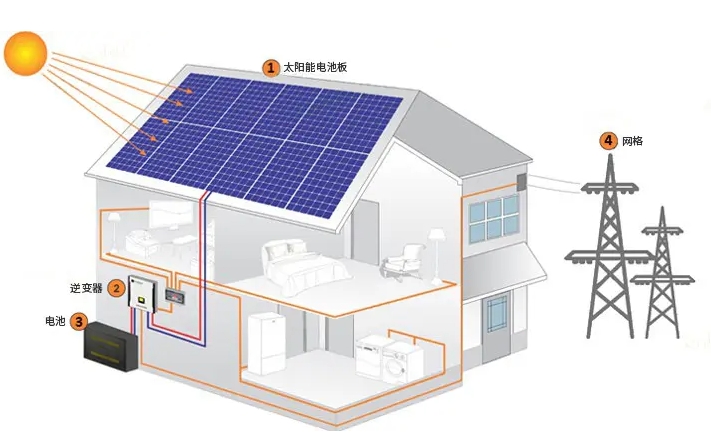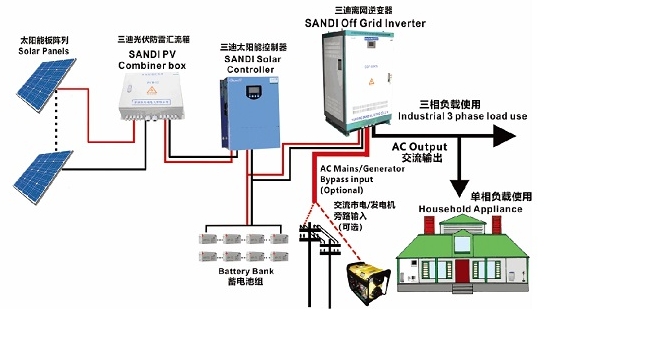Off-grid solar systems and on-grid solar systems have their own advantages and limitations, and which is better depends on the specific application scenario and needs.
Key benefits of an off-grid solar system include:
Grid-independent: Off-grid systems can operate independently and are not affected by grid outages, making them suitable for remote areas, areas with no grid coverage, or areas with frequent power outages.
Storable power: Off-grid systems are often equipped with energy storage batteries that can provide power when light is low or when electricity is needed.
Wide range of application: As long as there is sunlight, the off-grid system can be installed and used, especially suitable for islands, fishing boats, outdoor breeding sites and other places.
However, there are some limitations to off-grid solar systems:

Higher cost: The initial investment in an off-grid system is usually high due to the need to equip it with energy storage batteries and other equipment required for stand-alone operation.
High maintenance costs: Energy storage batteries need to be replaced and maintained regularly, which increases the cost of use.
Low power generation efficiency: Due to the need to consider the balance of energy storage and power supply, the power generation efficiency of off-grid systems may be slightly lower than that of grid-connected systems.
The main benefits of a grid-tied solar system include:
Low cost: The grid-connected system can use the energy storage capacity of the power grid, reduce the investment in energy storage batteries and other equipment, and reduce the initial investment.
High power generation efficiency: The grid-connected system can make full use of solar energy resources to achieve efficient power generation.
Environmental protection and energy saving: The grid-connected system can integrate excess electric energy into the power grid, reduce dependence on traditional energy and reduce environmental pollution.

However, there are some limitations to grid-tied solar systems:
Grid-dependent: Grid-connected systems need to be connected to the grid in order to operate, and if the grid goes out, the system will also stop functioning.
Cumbersome approval process: The grid-connected system requires a project application and approval process, which may take time and cost.
Geographical limitations: Grid-connected systems are limited by grid coverage and may not be available in some remote areas or areas without grid coverage.
To sum up, off-grid solar systems and grid-connected solar systems have their own advantages and disadvantages, and choosing which one is better depends on the specific application scenario and needs. Off-grid systems may be more suitable if you need to use a solar system in a remote area or an area without grid coverage, or if you need to address power needs in the event of a power outage; If you are looking for higher power generation efficiency and lower costs, and you are located in an area with grid coverage, a grid-connected system may be more suitable.
